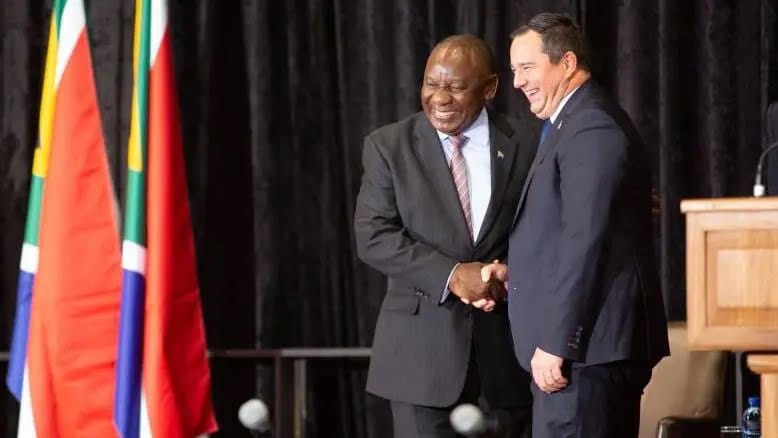South Africa’s year-old Government of National Unity (GNU) is showing deeper cracks, as disputes between President Cyril Ramaphosa’s African National Congress (ANC) and its largest coalition partner, the Democratic Alliance (DA), intensify.
Once hailed as a stabilizing force to prevent a radical coalition with opposition parties like the Economic Freedom Fighters (EFF) and uMkhonto weSizwe (MK), the ANC-DA alliance is now grappling with trust issues, policy disagreements, and growing frustration on both sides.
The latest flashpoint emerged after President Ramaphosa dismissed DA deputy minister Andrew Whitfield, who had undertaken an unsanctioned trip to the United States to lobby for South Africa’s continued inclusion in the African Growth and Opportunity Act (AGOA). The DA claims he had repeatedly sought permission to travel but received no response.
DA leader John Steenhuisen publicly rebuked Ramaphosa, accusing him of failing to uphold good governance while ignoring corruption within his own ranks. The DA warned that it would not support budget votes for departments led by ministers it deems compromised, including higher education.
Although tensions are high, both parties remain reluctant to exit the coalition. Analysts suggest that a political divorce could damage both camps ahead of next year’s local elections. For now, the GNU remains intact—but its future is uncertain, and calls for deeper dialogue and clearer mechanisms to resolve internal disputes are growing louder.
Many see the alliance not as a true partnership, but as a tactical truce aimed at keeping out more radical forces. As power struggles intensify, voters are left watching an uneasy union that risks unraveling if not urgently repaired.



